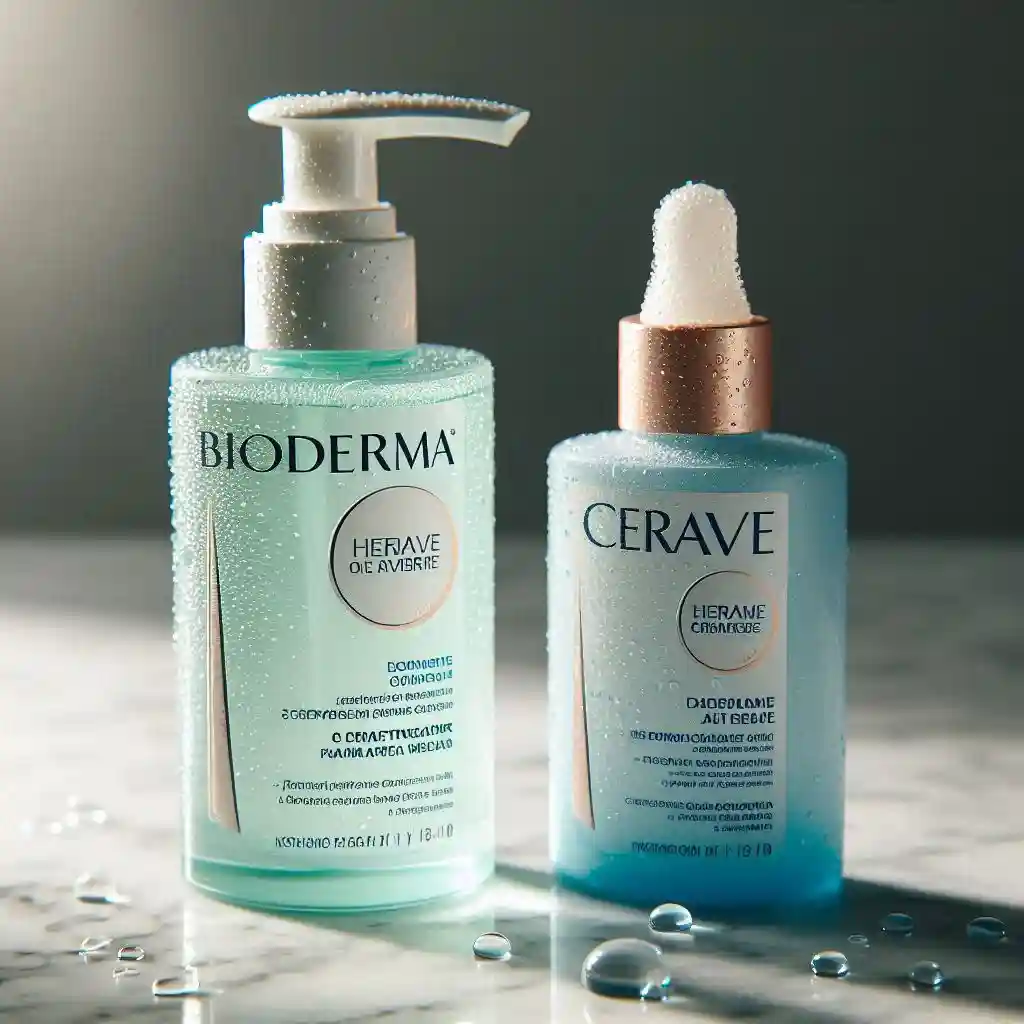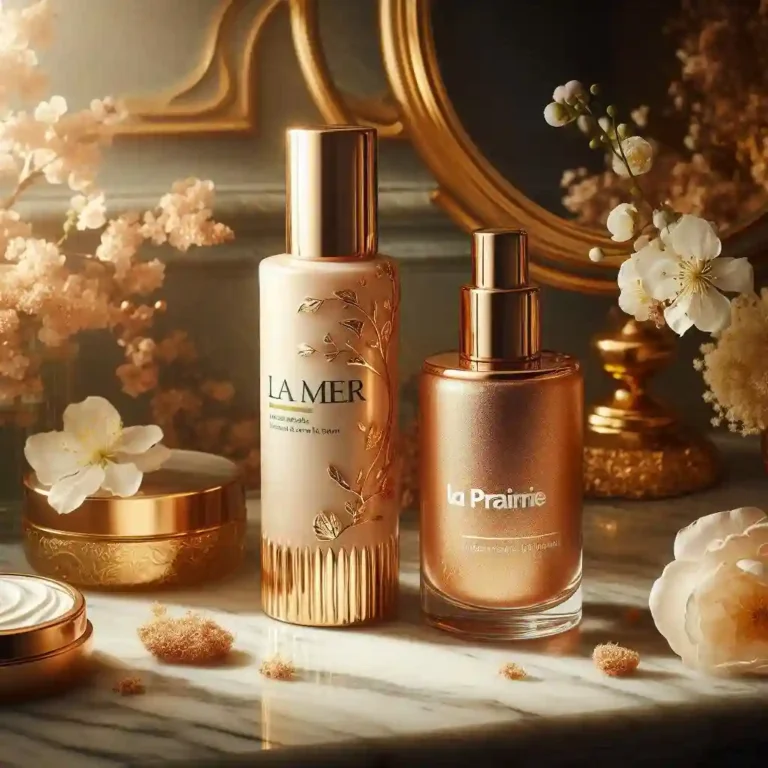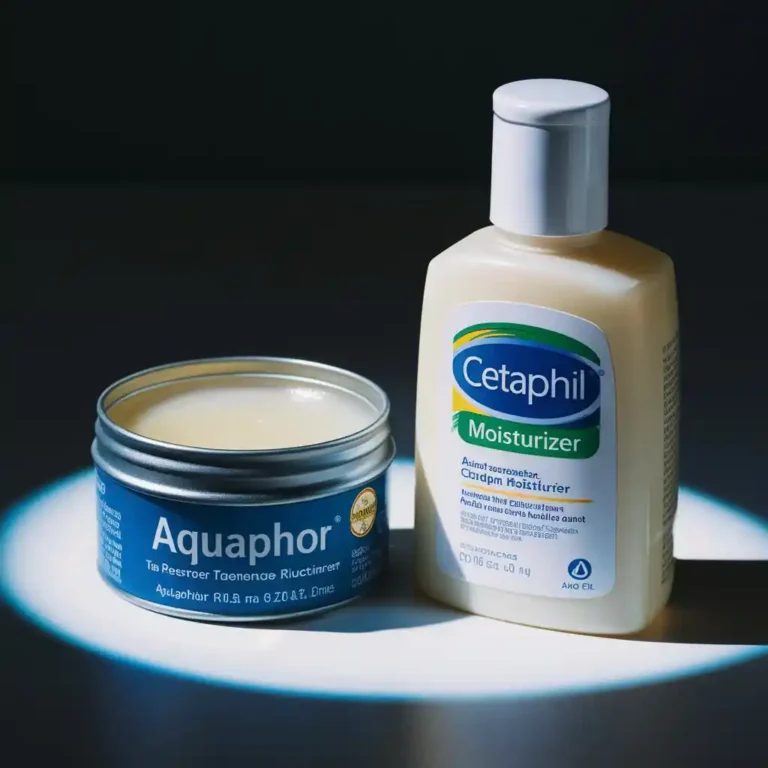Bioderma vs Cerave – A Side-by-Side Comparison
Bioderma vs Cerave – Two popular skincare brands that have gained a significant following are Bioderma and CeraVe.
Both brands have their own unique strengths and weaknesses, and understanding their differences can help individuals make an informed decision about which products to use.
In this side-by-side comparison, we’ll delve into the key similarities and differences between Bioderma and CeraVe to help you make a more informed decision about which brand is best for your skin.
Bioderma vs Cerave – A Quick Comparison
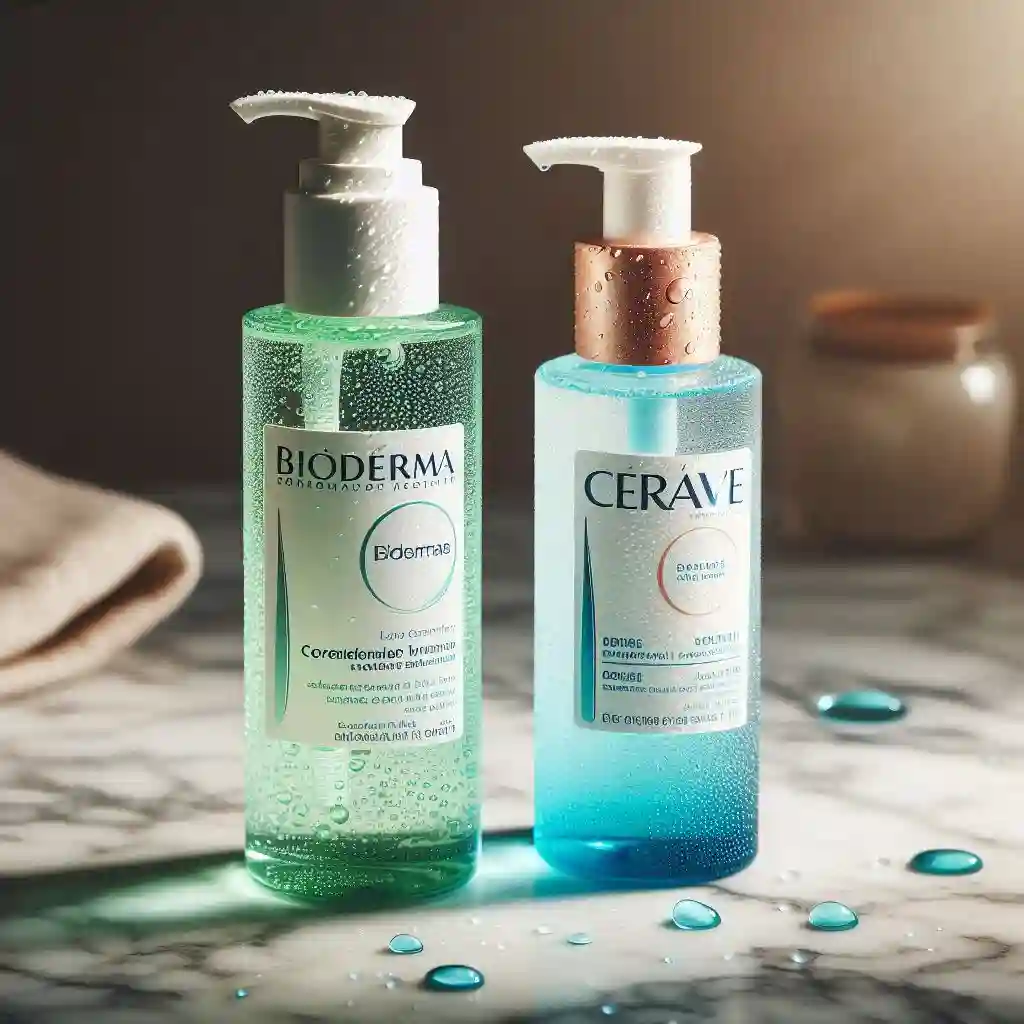
| Category | Bioderma | CeraVe |
|---|---|---|
| Brand Origin | French | American |
| Product Range | Wide range of skincare products, including micellar waters, cleansers, and moisturizers | Wide range of skincare products, including cleansers, moisturizers, and sunscreens |
| Key Ingredients | Micellar water, glycerin, vitamin C | Hyaluronic acid, ceramides, hyaluronic acid |
| Skin Types | Suitable for all skin types, including sensitive skin | Suitable for all skin types, including sensitive skin and dry skin |
| Moisturizing Properties | Provides long-lasting hydration, suitable for dry and dehydrated skin | Provides long-lasting hydration, suitable for dry and dehydrated skin |
| Price | Generally more expensive than CeraVe | Generally more affordable than Bioderma |
| Availability | Widely available in-store and online | Widely available in-store and online |
| Cruelty-Free | Yes | Yes |
| Hypoallergenic | Yes | Yes |
Ingredients: What’s Inside Matters
Bioderma:
- Micelle Technology: Bioderma’s signature ingredient, micelle technology, is a gentle, non-ionic surfactant that effectively cleanses the skin without stripping it of its natural oils.
- Glycerin: A humectant that helps retain moisture in the skin, leaving it feeling soft and supple.
- Ceramides: Natural lipids that help repair and restore the skin’s barrier function.
- Vitamin E: An antioxidant that helps protect the skin from environmental stressors and damage.
Cerave:
- Ceramides: Like Bioderma, Cerave also uses ceramides to help repair and restore the skin’s natural barrier.
- Hyaluronic Acid: A powerful humectant that can hold up to 1000 times its weight in water, providing long-lasting hydration.
- Glycerin: Also used in Cerave products, glycerin helps retain moisture and support the skin’s natural barrier function.
- Vitamin E: Another antioxidant that helps protect the skin from damage and stress.
Moisturizing Power: Hydration Levels Compared
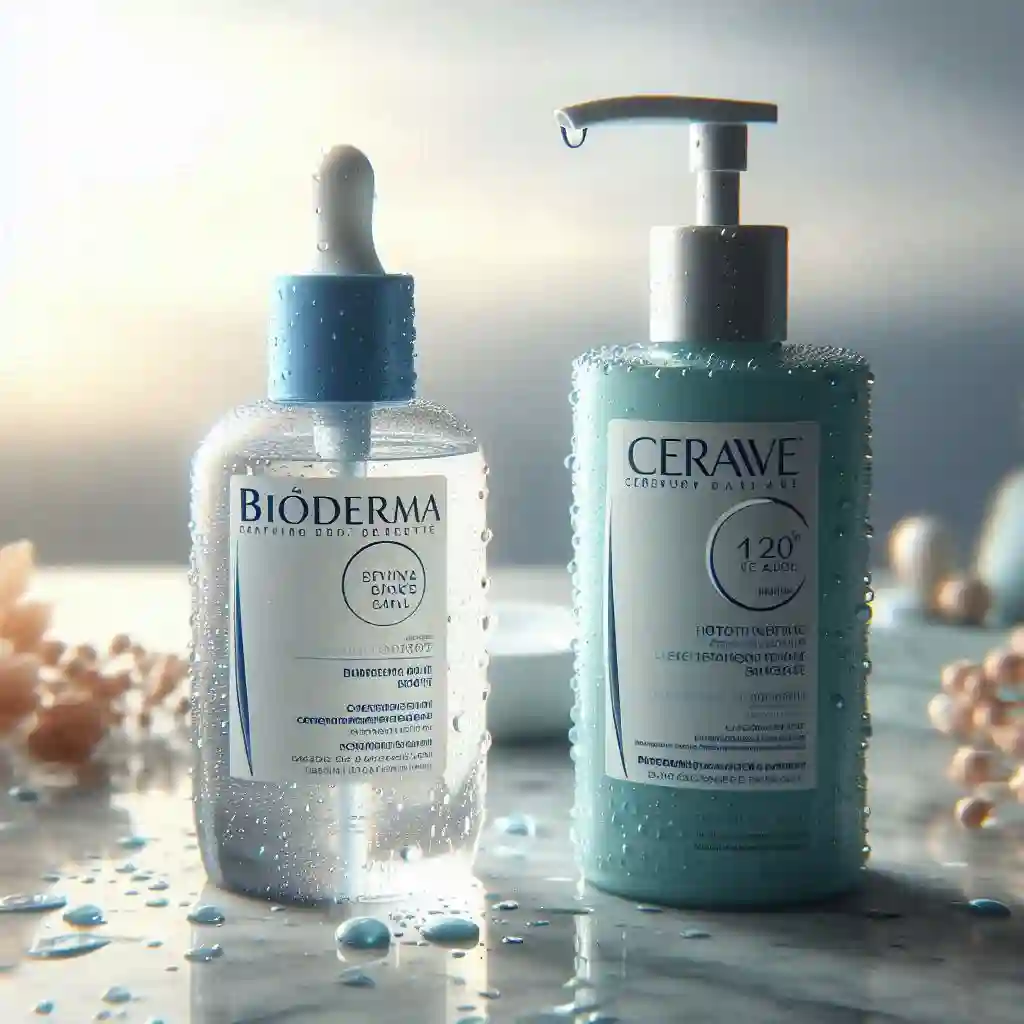
Hydration Levels:
- Bioderma: Bioderma’s moisturizers are designed to provide intense hydration for up to 24 hours. Their products contain a unique blend of humectants, including glycerin and hyaluronic acid, which work together to attract and retain moisture in the skin.
- Cerave: Cerave’s moisturizers are also designed to provide long-lasting hydration, with some products offering up to 24-hour hydration. Their products contain a blend of ceramides, hyaluronic acid, and glycerin to help repair and lock in moisture.
Moisturizing Power: The Verdict
- Winner: Cerave – While both brands offer excellent moisturizing power, Cerave’s products tend to provide slightly longer-lasting hydration, especially for dry or dehydrated skin.
Why Cerave Wins:
- Cerave’s use of hyaluronic acid, a powerful humectant that can hold up to 1000 times its weight in water, gives it an edge in terms of hydration.
- Cerave’s products are also formulated to repair and restore the skin’s natural barrier function, which helps to lock in moisture and provide longer-lasting hydration.
Skin Type Compatibility: Who Wins?
- Normal Skin: Both Bioderma and Cerave offer products suitable for normal skin, providing gentle, non-irritating formulas that maintain the skin’s natural balance.
- Dry Skin: Cerave is a clear winner for dry skin, offering a range of rich, hydrating products that provide long-lasting moisture. Bioderma also offers products for dry skin, but they may not be as intense or moisturizing as Cerave’s offerings.
- Oily Skin: Bioderma is a better choice for oily skin, offering lightweight, oil-free products that won’t clog pores or exacerbate oiliness. Cerave’s products can be too rich for oily skin, potentially exacerbating oiliness.
- Sensitive Skin: Both brands offer products suitable for sensitive skin, but Bioderma’s gentle, fragrance-free formulas may be a better choice for extremely sensitive skin.
- Acne-Prone Skin: Cerave’s products are often preferred by those with acne-prone skin, as they contain ingredients like hyaluronic acid and ceramides that help to repair and restore the skin’s natural barrier function.
Texture and Absorption: The Feel Factor
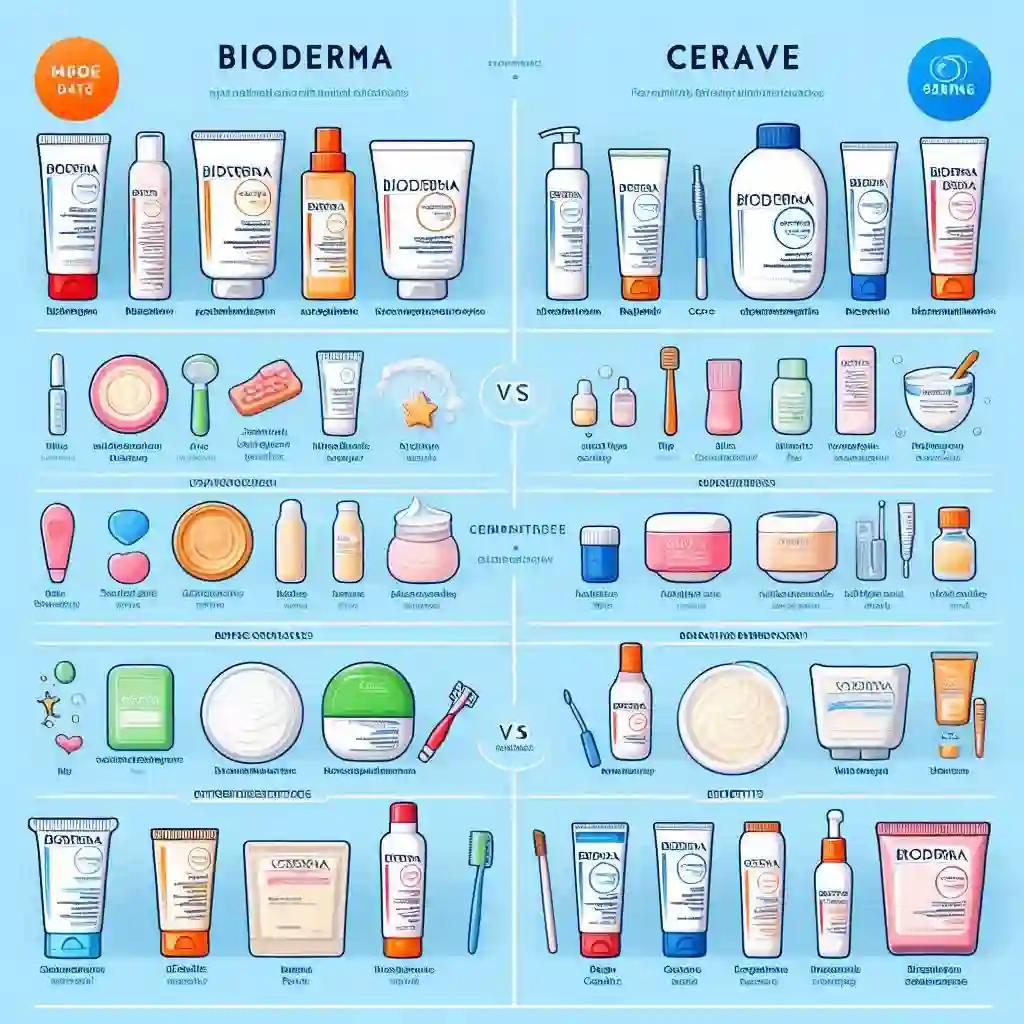
Texture:
- Bioderma: Bioderma’s products are known for their lightweight, non-greasy textures that absorb quickly into the skin. Their moisturizers have a silky, smooth feel that won’t clog pores or leave a residue.
- Cerave: Cerave’s products have a slightly thicker, more emollient texture than Bioderma’s, which can be beneficial for dry or dehydrated skin. However, this thicker texture may not be suitable for oily skin or those who prefer a lightweight feel.
Absorption:
- Bioderma: Bioderma’s products are designed to absorb quickly into the skin, leaving no residue or greasy feel behind. This makes them ideal for daily use, even under makeup.
- Cerave: Cerave’s products take a bit longer to absorb than Bioderma’s, but still absorb relatively quickly. This slower absorption rate can be beneficial for dry skin, as it allows the product to provide long-lasting hydration.
Price Point: Which Brand Offers the Best Value?
Product Pricing:
- Bioderma: Bioderma’s products tend to be priced slightly higher than Cerave’s, with moisturizers ranging from
15 to30 and cleansers ranging from10 to20. - Cerave: Cerave’s products are generally priced lower than Bioderma’s, with moisturizers ranging from
10 to25 and cleansers ranging from8 to15.
Value for Money:
- Winner: Cerave – While Bioderma’s products are high-quality, Cerave’s products offer similar benefits at a lower price point, making them a better value for the money.
Fragrance and Irritation: A Sensitivity Comparison
Fragrance:
- Bioderma: Bioderma’s products are often fragrance-free or contain gentle, skin-friendly fragrances that are less likely to irritate the skin.
- Cerave: Cerave’s products are also fragrance-free or contain gentle fragrances, but some products may contain slightly stronger scents that could potentially irritate sensitive skin.
Irritation:
- Bioderma: Bioderma’s products are designed to be gentle and non-irritating, making them suitable for sensitive skin. Their products are often formulated with soothing ingredients like aloe vera and green tea to calm and comfort the skin.
- Cerave: Cerave’s products are also designed to be gentle and non-irritating, but some products may contain ingredients like hyaluronic acid that could potentially cause irritation in extremely sensitive skin.
Sensitivity Comparison:
- Winner: Bioderma – While both brands offer gentle, fragrance-free options, Bioderma’s products are often more suitable for extremely sensitive skin due to their gentle, soothing formulations.
Ceramide Content: The Science Behind the Brands
Ceramide Content:
- Bioderma: Bioderma’s products contain a blend of ceramides, including ceramide 3, ceramide 6, and ceramide 1. These ceramides help to repair and restore the skin’s natural barrier function, providing long-lasting hydration and improved skin elasticity.
- Cerave: Cerave’s products contain a blend of ceramides, including ceramide 3, ceramide 6, and ceramide 1. These ceramides help to repair and restore the skin’s natural barrier function, providing long-lasting hydration and improved skin elasticity.
Real-World Results: User Reviews and Ratings
- Bioderma: Bioderma’s products have an average rating of 4.5 out of 5 stars on various online review platforms, with many users praising their gentle, non-irritating formulas and effective moisturizing properties.
- Cerave: Cerave’s products have an average rating of 4.2 out of 5 stars on various online review platforms, with many users praising their intense moisturizing properties and ability to provide long-lasting hydration.
FAQs
Q: What is the main difference between Bioderma and Cerave?
A: The main difference between Bioderma and Cerave is their approach to skincare. Bioderma focuses on gentle, non-irritating formulas that work well for sensitive skin, while Cerave focuses on intense moisturizing properties and hydration.
Q: Which brand is better for dry skin?
A: Cerave is often preferred by those with dry skin due to its intense moisturizing properties and ability to provide long-lasting hydration.
Q: Which brand is better for oily skin?
A: Bioderma is often preferred by those with oily skin due to its lightweight, non-greasy formulas that won’t clog pores.
Q: Which brand is better for sensitive skin?
A: Bioderma is often preferred by those with sensitive skin due to its gentle, non-irritating formulas that work well for sensitive skin.
Q: Which brand is more expensive?
A: Bioderma tends to be slightly more expensive than Cerave, but both brands offer high-quality products at a range of price points.
Q: Which brand has better customer reviews?
A: Bioderma tends to have slightly higher customer review ratings than Cerave, but both brands have strong online presences and positive reviews from users.
Q: Which brand is better for acne-prone skin?
A: Cerave is often preferred by those with acne-prone skin due to its gentle, non-comedogenic formulas that won’t clog pores.
Q: Which brand is better for mature skin?
A: Both Bioderma and Cerave offer products that can be suitable for mature skin, but Bioderma’s products tend to focus more on gentle, non-irritating formulas that work well for sensitive skin.
Q: Which brand is better for combination skin?
A: Both Bioderma and Cerave offer products that can be suitable for combination skin, but Bioderma’s products tend to focus more on gentle, non-irritating formulas that work well for sensitive skin.
Q: Which brand is better for dry, dehydrated skin?
A: Cerave is often preferred by those with dry, dehydrated skin due to its intense moisturizing properties and ability to provide long-lasting hydration.
Q: Which brand is better for oily, dehydrated skin?
A: Bioderma is often preferred by those with oily, dehydrated skin due to its lightweight, non-greasy formulas that won’t clog pores.
Q: Which brand is better for sensitive, oily skin?
A: Bioderma is often preferred by those with sensitive, oily skin due to its gentle, non-irritating formulas that work well for sensitive skin and won’t clog pores.

Hi, I’m Rachel Powell, the founder and creative mind behind FashionBeautyLooks.com. With a passion for all things fashion and beauty, I’ve dedicated my career to helping others discover their unique style and enhance their natural beauty.

